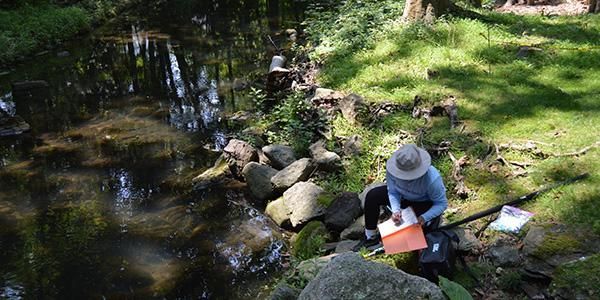Maintenance Plans & Reporting
In South Florida, a long-term maintenance plans for lakes in private communities are essential to ensure that these stormwater management systems function effectively over time. These maintenance plans are typically required as part of the permitting process and are designed to ensure compliance with environmental regulations and to protect public health and safety. Here are the key components of these maintenance plans:
Regular inspections are required, often on a quarterly or annual basis, depending on the specific requirements of the permit and the characteristics of the stormwater system. Inspections should cover the entire lake system, including inlets, outlets, embankments, control structures, and the lake itself. Inspection have reporting requirements set forth by each county in South Florida. Reports should be documented and kept on file, with copies submitted to the relevant regulatory authorities if required. Floating debris and trash should be removed regularly to prevent blockages and maintain aesthetic and environmental quality. Additionally, beneficial littoral (seasonally-flooded) plants should be managed to maintain their health and effectiveness in filtering pollutants. Invasive species must be controlled or removed. One of the most important factors (and most overlooked) is that the littoral plant around the shoreline must be maintained to prevent erosion and provide habitat for wildlife. This includes spraying herbicides, hand-pulling, and planting new littoral plants as needed to stay in compliance.

Above Picture: A long-term maintenance plan includes monitoring changes in things such as shoreline erosion, plant colonization, water quality, stormwater connections, docks, and lake depth.
Outlets, spillways, and other control structures should be inspected and maintained to ensure they are functioning correctly. Erosion of shorelines and cavities in-between homes (on lot lines) should be monitored and repaired as needed to prevent damage to the lake and surrounding areas; any damaged or deteriorating structures should be repaired or replaced promptly to maintain the integrity of the stormwater system.
Water Quality Testing Parameters: Regular testing for parameters such as nutrient levels (nitrogen and phosphorus), dissolved oxygen, pH, and pollutants (e.g., oils, heavy metals) may be required and conducted at intervals specified in the maintenance plan, which may be monthly, quarterly, or annually, depending on regulatory requirements and the specific conditions of the lake.

Detailed records of all maintenance activities, including dates, procedures, and findings, should be kept. Documentation should include any reports required by regulatory agencies, such as inspection reports, water quality testing results, and maintenance activities.
Resident Involvement: Provide a way for residents to report issues or concerns related to the stormwater system, such as unusual water levels, erosion, or water quality changes. Allocate sufficient funds for ongoing maintenance, repairs, and potential emergencies and discuss them in Board Meetings in which residents are able to attend. This may involve setting up a reserve fund specifically for stormwater management. Establish contracts with a state-licensed lake management company for regular maintenance tasks and inspections, ensuring that the work meets regulatory standards.
Specific requirements for maintenance plans are outlined in their stormwater management regulations and permits. These regulations are designed to ensure that stormwater systems are maintained to protect water quality, prevent flooding, and comply with state and federal environmental laws. Property owners and homeowners' associations are typically responsible for adhering to these maintenance plans and ensuring compliance.
Thus, effective long-term maintenance of stormwater lakes in private communities in Lee, Collier, Port Charlotte, DeSoto, Manatee, and Hillsborough counties involves a combination of regular inspections, sediment and debris removal, vegetation management, structural maintenance, water quality monitoring, documentation, emergency preparedness, community involvement, and financial planning. By adhering to these practices, communities can ensure their stormwater systems function properly and continue to provide essential environmental and public safety benefits.






